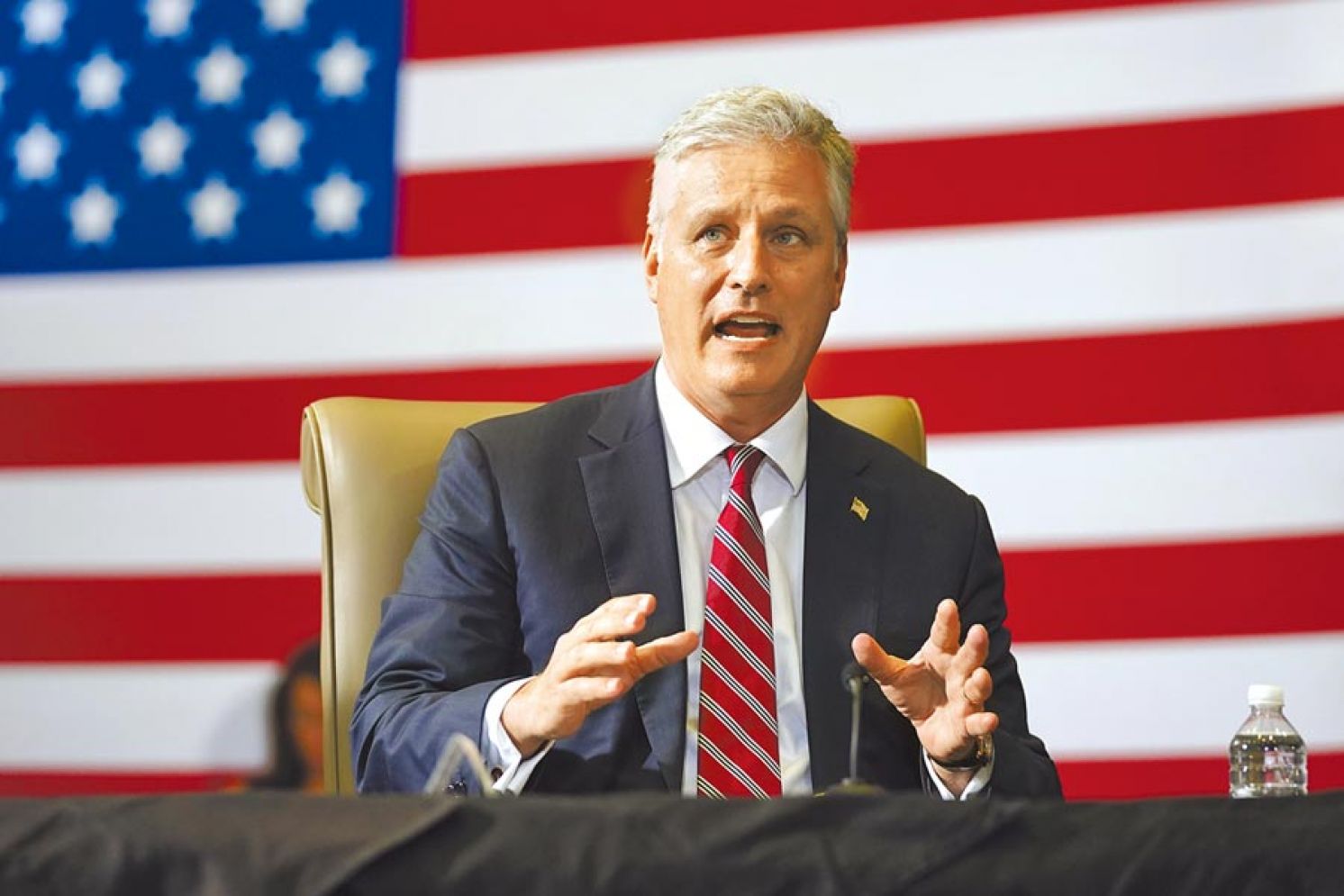
U.S. Warns Beijing Against Military Unification, Suggests Taiwan Expand Arms Purchases to Become a Porcupine
China Times, October 9, 2020
U.S. National Security Advisor Robert O’Brien warned China on Wednesday against any attempt to take Taiwan by force. He said that part of Beijing’s buildup of the navy was to gain the ability to push the United States back out of the Western Pacific, and allow them to engage in an amphibious landing in Taiwan. According to O’Brien, the problem with that is that amphibious landings are notoriously difficult. He added and pointed out the paucity of landing beaches on the island.
He maintained the long-standing American policy of strategic ambiguity toward both sides of the strait; He said that there was a lot of ambiguity about how the United States would respond. In addition, he called on Taiwan to turn itself into a porcupine militarily, since lions generally don't like to eat porcupines.
O'Brien called on Taiwan to increase defense spending and push for military reforms to make clear to China the risks of using force. He stated that Taiwan's defense expenditure only accounts for 1.2 percent of gross domestic product (GDP). According to O’Brien, one cannot just spend 1 percent of your GDP and hope to deter mainland China. Taiwan needs to invest in improving various capabilities, including the deployment of coastal defense cruise missiles, mines, fast attack craft, mobile artillery, and advanced reconnaissance assets.
The U.S.-Taiwan National Defense Industry Conference has ended. Rupert Hammond-Chambers, president of the U.S.-Taiwan Business Association, which hosted the conference, said that packages of arms sale to Taiwan are moving through the final export process before the Congress is formally notified.
This is one more of a series of U.S. national security senior officials' remarks on the situation of the Taiwan Strait. In answering to a question in Tokyo on October 6: "If China unilaterally invades Taiwan, is the United States ready to engage militarily?" Secretary of State Mike Pompeo said that as a good partner for security in every dimension, the United States is doing everything it can to reduce tensions in the region. Pompeo said earlier that he spoke with President Donald Trump before going to Tokyo, and Trump "provided all the guidance that he always does for me."
President Trump, who has returned to the Oval Office in the White House, said yesterday that his infection with the coronavirus (COVID-19) was a blessing in disguise and that "China is going to pay a big price."
It is generally believed that President Trump may play the "Taiwan card" before or even after the U.S. presidential election to provoke Beijing, intensify contradictions, and trigger conflicts. The U.S. ambassador to China Terry Branstad has returned to the United States.
O'Brien was asked what options the United States would be if Beijing moved to try to absorb Taiwan, It is not an easy task, and there is also a lot of ambiguity about what the United States would do in response to China's attack on Taiwan, O’Brien said. The United States is required by law to provide Taiwan with the means to defend itself, but it has not made clear whether it will intervene militarily in the event of a mainland Chinese attack, something that would likely lead to a much broader conflict with Beijing.
O'Brien pointed out that China was engaged in a massive naval buildup probably not seen since Germany's attempt to compete with Britain's Royal Navy before World War I. And Henry Kissinger, who brokered the U.S. rapprochement with China, gave a warning at the video conference on October 7. He said that China and the United States must establish rules of engagement for their increasingly tense competition, or risk recreating the uncertainty that characterized global politics leading to World War I.
Kissinger emphasized that the leaders of China and the United States have to discuss the limits beyond which they will not push threats and then find a way of conducting such a policy over an extended period. According to Kissinger, this is totally impossible, and if it is totally impossible, we will slide into a situation similar to World War I. The United States needs a new way of thinking that understands the world is too complex for one country to achieve such a unilateral superiority in both strategy and economics that nobody in a position to threaten it.
From: https://www.chinatimes.com/newspapers/20201009000382-260118